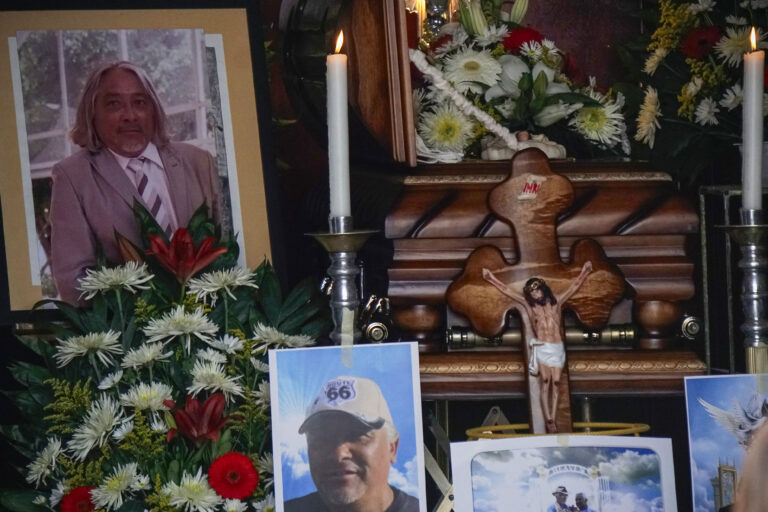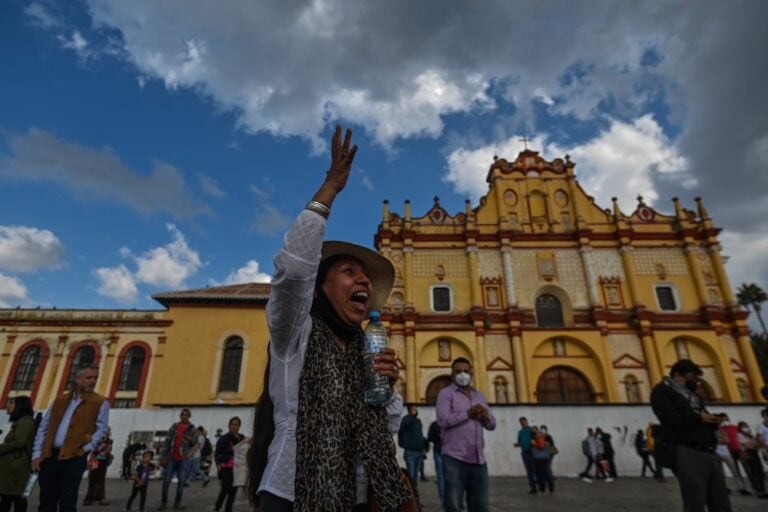In effect, the legislation makes federal authorities responsible for investigating and prosecuting attacks on the press, instead of state and local authorities who have been prone to corruption and inefficacy.
(CPJ/IFEX) – New York, March 13, 2012 – The Committee to Protect Journalists hails the Mexican Senate’s landmark approval today of a constitutional amendment that, if passed by a majority of states, would federalize anti-press crimes and transfer investigative powers to national authorities.
“We congratulate the Mexican Senate and President Felipe Calderon on today’s legislative milestone and call on the states to quickly approve the amendment,” said Carlos Lauria, CPJ’s senior coordinator for the Americas program. “But this is only the first step in confronting Mexico’s near 90 percent impunity rate for journalists’ murders. Mexican authorities must quickly implement this legislation and then work to obtain full justice for our slain colleagues.”
The broadly worded amendment, approved unanimously in the Senate today, would modify Article 73 of the Mexican Constitution to say that federal authorities would have jurisdiction over any crime against “journalists, people, or outlets that affects, limits, or impinges upon the right to information and freedom of expression and the press.” In effect, the legislation makes federal authorities responsible for investigating and prosecuting attacks on the press, instead of state and local authorities who have been prone to corruption and inefficacy. Versions of the legislation have been debated since 2008 before finally passing the Chamber of Deputies in November.
The measure now goes for ratification to the states, where passage by half plus one is needed for the change to go into effect. Senators told a CPJ delegation
this month that despite some resistance, they expect the bill to be passed by the states within the next two months. The Institutional Revolutionary Party (PRI), which holds a majority in the Senate and controls the governorships in most of Mexico’s states, is expected to urge state legislatures to pass the amendment.
Details of how the amendment will be implemented still need to be worked out. Senators told the CPJ delegation that implementation will require some combination of new legislation and changes to federal procedural and penal codes. This will require swift collaboration between the Senate and lower house. If no agreement is made before the end of the legislative session in late April, the implementation measures will be shelved until the new session begins in September.
Once the procedural changes are finalized, anti-press crimes will fall under the purview of the special federal prosecutor for crimes against freedom of expression, a high-level position in the Attorney General’s office.
The special prosecutor’s office was created in 2006 to investigate the few crimes against freedom of expression already classified as federal offenses. (While murder is a state crime, the federal special prosecutor could claim jurisdiction if a violation of federal law, such as use of an assault rifle or intimidation of a witness, occurred during the course of the crime.) CPJ research has found, however, that that office has failed to live up to its promise. Notably, it has never solved a murder case involving a journalist.
Senate leaders told the CPJ delegation that the special prosecutor’s office would have to be strengthened, but exactly how that would be done was not clear. The details, including a very large increase in resources, would have to be handled in negotiations over the new law or federal codes to implement the amendment, according to Senate leaders.
CPJ has been pushing for federalization of crimes against the press for several years during a period of rampant violence against the Mexican press. More than 40 journalists have been killed or disappeared since Calderon launched a massive military offensive against the powerful drug cartels after taking office in December 2006, CPJ research shows. Drug violence and corruption have devastated the news media, causing fear and censorship that has destroyed the ability of the press to report the news and stripped citizens of their rights to freedom of expression and access to information.
Compounding the problem of violence is a climate of widespread impunity. Crimes against the Mexican press are almost entirely unsolved, CPJ research shows, not only as a result of negligence and incompetence, but of widespread corruption among law enforcement officials, particularly at the state level. The failure of the weak, corrupt, and overburdened justice system to investigate abuses against journalists has encouraged further crimes. The greater resources and training available at the federal level offer hope for a more effective response; the higher level of scrutiny serves as a check against the corrupting power of criminal organizations.
During today’s session, the Senate recognized the work of Mike O’Connor, CPJ’s Mexico representative, and other press freedom and human rights defenders in bringing attention to the issue.


